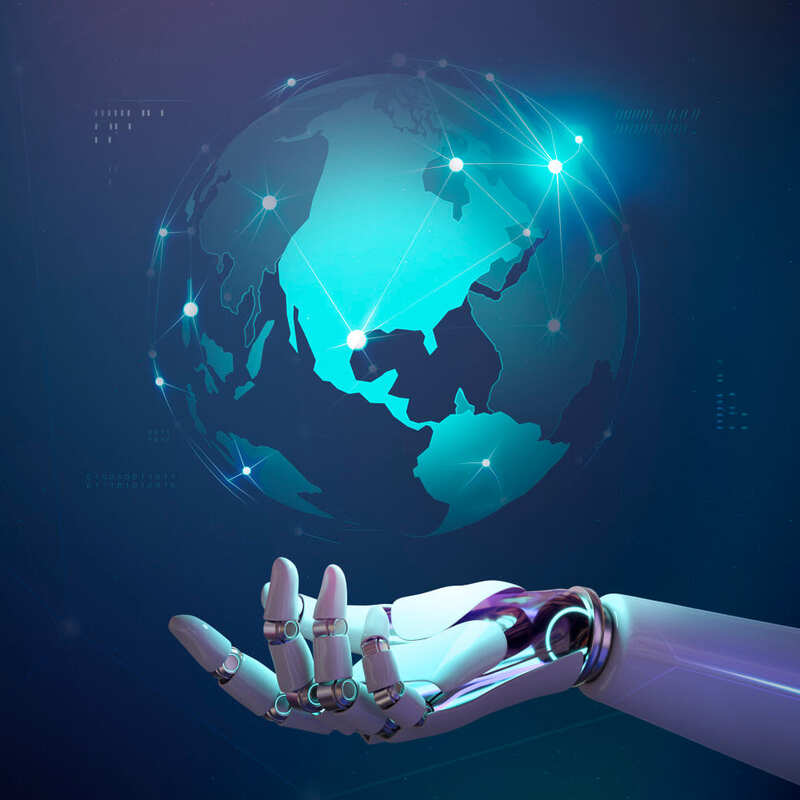Today, global business competition is growing more intense — including in Southeast Asia. Companies across the region are competing to win customers’ trust and loyalty. Likewise, with increasing international competition, companies are seeking business collaborations with partners from other countries.
Contracts and agreements are essential documents in business collaborations. However, the use of different languages can hinder these collaborations.This is where business translation services play a vital role — bridging language barriers and ensuring smooth collaboration.
For instance, two entrepreneurs collaborated to increase competitiveness, expand market reach, and overcome resource constraints. These two entrepreneurs were from Indonesia and Thailand.
The Indonesian entrepreneur owned a skincare business, while the Thai entrepreneur produced high-quality skincare ingredients. However, language barriers made it difficult to reach an agreement, leading to misunderstandings. This obstacle even led to misunderstandings between the two. Eventually, the collaboration failed.
So, why is translation so crucial for companies in Southeast Asia? It’s worth noting to you that this region is rich in languages, making it a multilingual area. Language is an essential communication tool for businesses, as it serves as a tool for effectively conveying messages and ideas.
The Language Landscape of Southeast Asia
With over 1,000 languages spoken, Southeast Asia stands as one of the most linguistically diverse regions in the world. In fact, many words have been borrowed from different languages due to trade, migration, and the spread of religions in the past.
This linguistic diversity reflects the region’s rich cultural heritage. Don’t be surprised if you visit a Southeast Asian country and hear a different dialect — sometimes changing just from one town to another.
We should be grateful for the positive impacts of globalization. Globalization accelerates cross-border collaboration — even across oceans. The effect of globalization is undoubtedly the development of businesses in this region, which has led to increasingly rapid economic growth.
Cross-border interactions also enable businesses to collaborate with partners from other countries. One way to understand each other’s languages is through translation. However, this effort often results in “lost in translation” moments, where misunderstandings arise due to translation errors.
This process involves more than just literal translation; it requires understanding the meaning of the target language. This can lead to serious business losses. Therefore, business translation is necessary to address these “lost in translation” moments.
The Real Job Behind Business Translation Services
The rapid growth of businesses and their expansion has increased the need for professional business translation services.The translation process involves more than converting one language to another.
This is because translating business documents is a complex task that requires business context and objectives, specialized terminology, cultural nuances, communication styles, and the legal aspects of the relevant countries. Therefore, a business document cannot be treated the same as a general or literary text, highlighting the need for professional services.
The translation process involves several stages: project analysis, terminology management, and translation. In the project analysis stage, documents are collected, business objectives are determined, target audiences are identified, language pairs are determined, and specific terminology and style are established.
Second, terminology management involves compiling a glossary of business and technical terms, creating or updating a Translation Memory (TM) using CAT tools, defining the language style, and ensuring the file format is ready for translation.
The translation process requires precision and accuracy, including adapting idioms to the target language. To maintain speed and consistency, translators use CAT tools. However, a human touch is vital to maintain the cultural nuances of the target country.
So, with today’s technological advancements, why are translators still needed? If you’ve ever read AI-generated text and compared it with human writing, you’ll notice the difference. While it provides a wealth of information, the writing can still feel stiff and dry.
Human writing, on the other hand, still captures cultural nuances, taking into account communication styles, social norms, and standards of politeness within a country.
Certified Translators: The Real MVPs Behind Legal and Financial Trust
In an increasingly connected global business world, language can be a bridge or a barrier. This is where the role of certified translators becomes vital. They are not just general translators, but trained and legally recognized professionals who guarantee the accuracy, authenticity, and validity of every important document.
In the context of legal and financial documents such as Memoranda of Understanding (MoUs), cooperation contracts, export-import licenses, financial reports, or court documents, a single wrong word can have serious legal consequences.
Certified translators ensure this never happens. They understand not only two languages, but also the legal systems, business terminology, and official writing styles of both countries. The result is a translation that is not only linguistically accurate but also legally valid.
Many countries, including Indonesia, require the use of sworn or certified translators for official documents. This is not a formality, but rather a guarantee of integrity. If you attempt to translate your business documents using an unlicensed translator, your documents could be deemed invalid or rejected by government agencies, courts, or international banks.
Furthermore, certified translators also serve as guardians of information security and confidentiality. Moreover professional ethics bind them to safeguard the contents of documents, especially those related to financial data or high-value business agreements.
Certified translators are pillars of trust in cross-language communication in the legal and financial worlds. They ensure that every word carries equal weight in every language, maintaining transparency, clarity, and global trust in every transaction. This effort is a long-term investment for your business’s future.
Why Southeast Asian Businesses Are Investing in Translation
Southeast Asia is undergoing tremendous economic growth. Over the past decade, the region has emerged as a hub for imports and exports, foreign investment, and the development of cross-border startups.
From Jakarta to Ho Chi Minh City, local businesses are increasingly recognizing one crucial fact: language determines trust and opportunity. Therefore, investing in business translation services is no longer an option, but a strategic necessity for growth.
The surge in export and import activity requires companies to communicate effectively with partners from various countries. Trade contracts, customs documents, and even export and import licenses require accurate translation to avoid legal or administrative errors.
Furthermore, many regional technology startups now operate across borders. For example, Indonesian startups expanding to Malaysia or Vietnam require localized translations that are not only accurate but also aligned with the culture and communication styles of the target countries.
Another factor is the influx of foreign investors. Global investors from Japan, the United States, and the Middle East are increasingly investing in Southeast Asia. To attract and maintain investor trust, all documents — from financial reports to proposals — must be translated clearly and professionally.
Furthermore, digitalization accelerates cross-border collaboration, but it also increases the need for accurate language use. Therefore, we must use clear and localized language to reach multilingual customers effectively.
Given all these factors, it’s clear that businesses in Southeast Asia are not simply translating words, but building bridges of global communication. Investing in translation services is now part of a long-term strategy for growth and trust.
The AI Factor: How Technology Is Shaping Translation
Technological advancements, particularly artificial intelligence (AI), have transformed nearly every aspect of the professional world, including the business translation industry. Today, AI-powered translation tools such as Machine Translation Post-Editing (MTPE), neural networks, and natural language processing (NLP) can translate text in seconds with increasing accuracy. Companies in Southeast Asia and around the world are now leveraging this technology to accelerate cross-language communication and reduce operational costs.
AI is highly effective in handling large, multilingual translations — especially in sectors like finance and e-commerce. Machine learning-based systems can even learn from a company’s terminology preferences to gradually improve translation results. This makes business processes more efficient and consistent.
There are numerous pros and cons to the use of AI, including its application in the translation process. Many people believe that AI will completely change the world of writing and translation. AI is even touted as being smarter and more accurate than humans. However, humans can still choose how to adapt to this development.
This is because, even as AI becomes increasingly sophisticated, the “human touch” remains irreplaceable. AI doesn’t fully understand the cultural context, emotions, or diplomatic nuances that often arise in business communications.
In legal documents, marketing, or cross-cultural negotiations, humans are still needed to ensure translations convey the right empathy, tone, and meaning.
Rather than replacing humans, AI is creating a new model of collaboration between human translators and machine translation. Technology accelerates the process, while human translators ensure quality, context, and credibility.
The result is a synergy between digital speed and human sensitivity, the foundation of the future of the global translation industry.
Why Cultural Context Still Wins
In this era of digital and rapid globalization, businesses are increasingly reliant on technology to reach international markets. However, technological advancements will not eliminate the fact that business is a human-to-human relationship. Cultural context and the human touch remain key to successful cross-language communication.
In the business world, messages are not just about words, but also about their meaning, tone, and cultural values. A sentence that sounds polite in one language can sound awkward or even offensive in another. This is where the role of human translators becomes crucial.
They not only transform language but also interpret the emotions, intentions, and social context behind the message. This remains a challenge, even for the most advanced AI. Imagine if you didn’t work with a human translator at all, relying solely on AI. You might get a fast translation — but AI lacks the same cultural sensitivity as humans.
When companies expand overseas, understanding the local cultural context is key to building trust. For example, suppose you’re a Malaysian entrepreneur expanding into Indonesia. To be relevant to your business partners, you need to understand the cultural nuances of the target country. Therefore, a human translator will continue to serve as a bridge across cultural differences. This ensures your business message remains relevant, respectful, and effective.
Technology can help expedite the process, but it cannot replace cultural sensitivity, empathy, and human intuition. Therefore, in the multilingual business world of Southeast Asia, cultural context remains a true winner.
Real-World Impact: When Good Translation Builds Trust
In Southeast Asia, many companies have demonstrated that effective translation is not just about language, but also about building trust. For example, Grab, which originated in Malaysia before expanding across the region, has successfully tailored its business communications to the cultural and linguistic context of each country.
From local-language marketing campaigns to an app interface tailored to “users” communication styles, Grab has successfully created an emotional connection with millions of customers. Accurate translations play a crucial role in making companies appear credible to foreign investors and global regulators.
This is evident in the success of Tokopedia, from Indonesia, which has attracted global investors thanks to its ability to present financial reports, contracts, and business proposals in clear, professional English and in accordance with international terminology.
Similarly, Grab, originating in Malaysia and expanding across the region, has successfully tailored its business communications to the cultural and linguistic context of each country. This success demonstrates that proper business translation builds reputation and trust.
Correctly delivered language reflects professionalism, transparency, and respect for business partners from diverse cultures. In an interconnected global economy, trust is the ultimate currency, and accurate and culturally appropriate cross-language communication is the most obvious way to maintain it.
The Future of Business Translation in Southeast Asia
Business translation services in Southeast Asia have become a necessity for bridging business relationships with partners in target countries. Furthermore, these services are a lifeline for businesses amidst intense global competition, especially in Southeast Asia. Indonesian companies will have more freedom to collaborate with Thai companies because they understand and comply with local cultural nuances and regulations.
AI is integral to the translation process. The process may seem overly reliant on technology, but AI will facilitate faster and more accurate work. For example, SpeeQual utilizes CAT tools and MTPE throughout the translation process to ensure accuracy and thoroughness, resulting in faster results.
As a region with rapidly growing economies, business translation is crucial for the smooth running of businesses. However, translation must be performed by certified translators with experience in their respective fields, including business.
In addition to having experience working with numerous clients from various industries, SpeeQual will help you expand your business into Southeast Asia by translating your business documents. We have a team of translators who speak 12 languages in Southeast Asia, which enables you to be more relevant to your business partners and customers.
So, get ready to earn your partners trust by entrusting your business documents to us for translation. Contact us now!





